Remote Ready Biology Learning Activities has 50 remote-ready activities, which work for either your classroom or remote teaching.
Serendip is an independent site partnering with faculty at multiple colleges and universities around the world. Happy exploring!
| Linear science | Seriously loopy science |
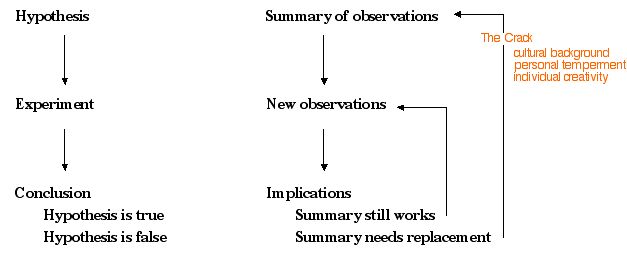 | |
| Science as body of facts established by specialized fact-generating people and process
Science as successive approximations to Truth
| Science as process of getting it less wrong, potentially usable by and contributed to by everyone
Science as ongoing making of observations, summarizing, making new observations, making new summaries Science as skepticism usable by and empowering anyone at any time about any thing for any purpose |
| The Linear Brain | The Loopy Brain with Semi-autonomy and Story Telling |
|---|---|
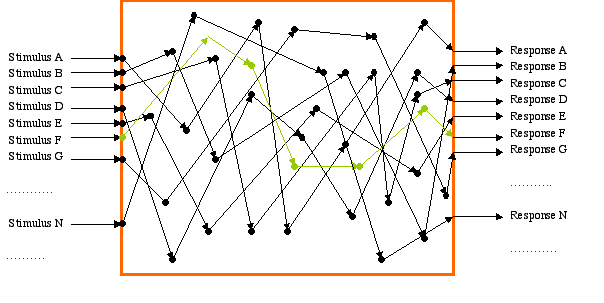
| 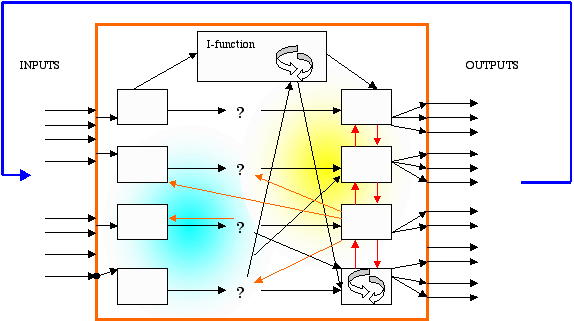
|

| "Science has the potential to be what we all collectively need as we evolve into a world wide community: a nexus point that encourages and supports the evolution of shared human stories of exploration and growth, an evolution in which all human beings are involved and take pride. For this to happen, we all need to work much harder to not only reduce the perception of science as a specialized and isolated activity of the few but to make it in fact the product and property of all human beings" .... Revisiting Science in Culture |
Biology 103 (see also Biology 202 and Biology 223 = English 223)
The SENCER experience
There is a need for coordinated change through the educational system, including precollege levels.
From the Science as Story Telling in Action summer 2005 group
There is a need for serious engagement with the broader culture within which education is necessarily situated.
The Potential ("people can develop their ideas and perspectives in extensive interaction with other people")
| ||||||
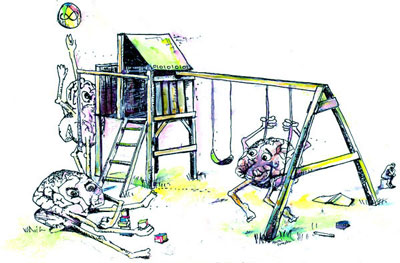
| 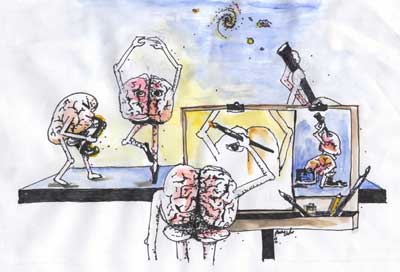
|
Many of these are "community" functions, and we can try to find ways to do them more effectively on Serendip and on the web generally. But there is something to be said for the additional distinctive kinds of interaction that the web makes possible ... and for evolving human interactions generally in new ways based on those experiences ...
General lessons from the web about the prospects of "a nexus point that encourages and supports ..." and about process oriented education with the same objective
Science is about change, about getting it less wrong
Science education should help people become better at thinking for themselves at ongoing, shared, exploration and creation
The brain is about change, about getting it less wrong
Stories can/should be used to encourage change, getting it less wrong
People (scientists included) need to become more comfortable with change and the capability/role that individuals can/should play in it
Science not as "authority" but rather
|
Very helpful to have the images of the student who "gets it", can do it but not explain it, on the one hand, and of the student who can explain it but not do it on the other. Yes, we should value, pay attention to, unconscious learning as well as to conscious processing and, most importantly, to the back and forth between the two of them. Also very helpful to be challenged on whether I am advocating teaching young students (or anyone else) that there is no "Truth". No, that is not my intended message (however I might sound). The point is not to teach the "Truth" that there is no "Truth". The point is to teach in such a way that one doesn't (inadvertently or otherwise) give students to understand that what they are hearing is "Truth". Its teachers (not students) who need to understand that science isn't/can't be "Truth", so they don't mislead students on this subject. And, as became clear in discussion (thanks all), the issue here is as much practical as metaphysical. Being told science is "Truth" turns at least some people away from science (for a variety of reasons). And contributes to their concerns about getting things "right", which in turn inhibits their natural exploratory activities. And makes it hard for students to deal with transitions from one "Truth" to another as they progress through science courses. And gives them trouble in the real world, where things are inevitably messy and uncertain to varying degrees. |
| Forum | Brain and
Behavior | Serendip Home |